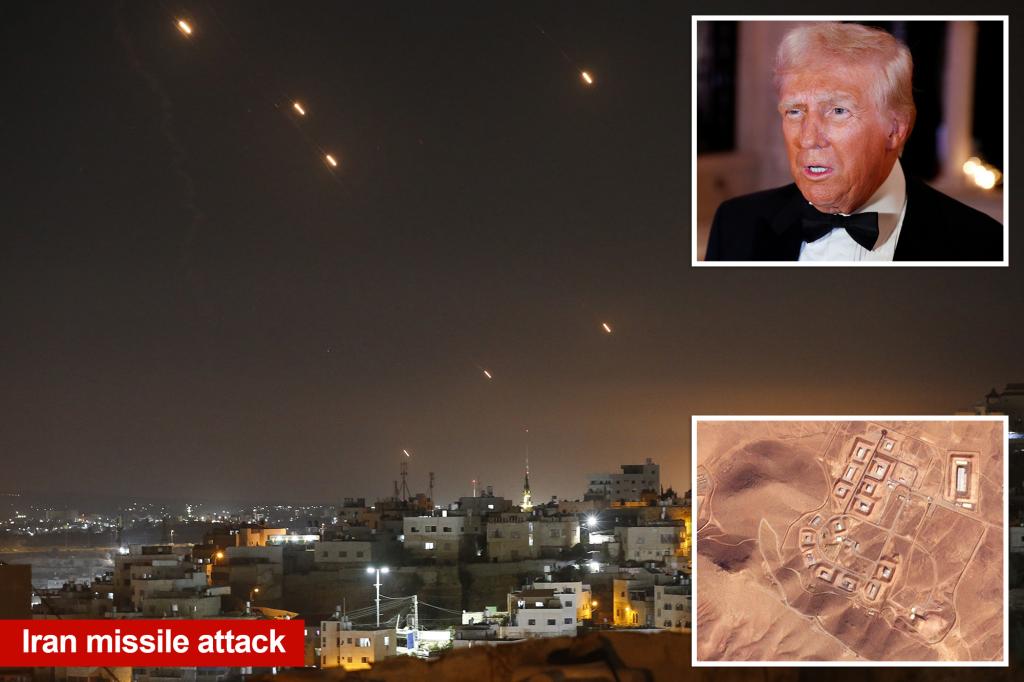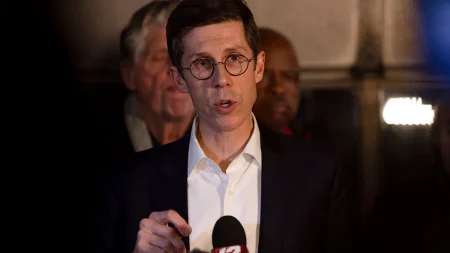The escalating tensions between Israel and Iran have reached a critical juncture, with Israel seriously contemplating a military strike against Iran’s nuclear facilities. Israeli defense sources, speaking to The Post, emphasized the formidable challenge such an operation would present. Iran’s nuclear program is dispersed across multiple locations, many deeply buried underground, requiring specialized weaponry like “bunker buster” bombs to effectively neutralize. This complex configuration presents a significant logistical hurdle for any potential Israeli strike, demanding precise intelligence and substantial military resources. Furthermore, the potential for global repercussions is substantial, with Iran’s allies, including Russia and North Korea, potentially reacting aggressively to any attack against their partner. This intricate geopolitical landscape makes an Israeli strike a high-stakes gamble with potentially far-reaching consequences.
Israel’s contemplation of military action stems from a deep-seated concern about Iran’s nuclear ambitions and its perceived role in supporting regional adversaries. Since the Hamas attacks in October 2023, which Israel attributes to Iranian influence, the conflict has intensified. Israel views Hamas, Hezbollah, and the Houthis as extensions of Iranian power, forming a network of threats that encircle the Jewish state. With Iran perceived as weakened after a year of conflict, Israel sees a potential window of opportunity to dismantle its nuclear program before it becomes an irreversible threat. The belief is that a nuclear-armed Iran would pose an existential danger to Israel, justifying preemptive action, even if it carries substantial risks. This perception of an existential threat underscores the gravity of the situation and the difficult choices facing Israeli leadership.
Adding another layer of complexity to the situation is the shift in US presidential administrations. While the Biden administration had expressed reservations about Israeli military action, particularly concerning the use of bunker-buster bombs, the incoming Trump administration has signaled a more permissive stance. Trump’s previous withdrawal from the JCPOA, coupled with his generally supportive rhetoric towards Israel’s right to self-defense, has encouraged Israeli officials to believe they might have greater leeway under his presidency. This perceived shift in US policy provides a potential catalyst for Israeli action, as they seek assurances of American backing in the event of a strike. The contrasting approaches of the Biden and Trump administrations highlight the significant influence of US policy on the Israeli-Iranian dynamic.
However, even with potential US support, an Israeli strike against Iran’s nuclear facilities is fraught with risks. The dispersed and hardened nature of the Iranian program makes a complete and decisive strike difficult to guarantee. Partial success could leave Iran with the capacity to rebuild or retaliate, potentially escalating the conflict. Moreover, the international community’s reaction is unpredictable. Unlike the 2007 strike on a Syrian reactor, which remained largely undisclosed for years, the current geopolitical climate, fueled by social media and heightened scrutiny, makes maintaining strategic ambiguity nearly impossible. An overt attack could trigger international condemnation and potentially isolate Israel diplomatically. This heightened level of international awareness raises the stakes for any potential Israeli action.
Beyond the immediate tactical and diplomatic challenges, the broader geopolitical implications are profound. An Israeli strike against Iran could destabilize an already volatile region. Iran’s allies, including Russia and North Korea, might perceive the attack as a precedent for targeting their own nuclear programs, potentially triggering a cascade of reactions with unpredictable consequences. Furthermore, such a strike could undermine the already fragile international nuclear non-proliferation regime, emboldening other states seeking nuclear weapons. The potential for a wider conflict, involving major global powers, underscores the gravity of the situation and the need for careful consideration of all possible outcomes.
The Israeli dilemma is further complicated by the erosion of trust in international agreements. The perceived failure of the JCPOA to effectively curb Iran’s nuclear ambitions has led some Israeli officials to believe that diplomatic solutions are no longer viable. This skepticism extends to the United States’ repeated assurances that Iran will not be allowed to develop nuclear weapons. The fear is that if Iran crosses the nuclear threshold, the credibility of US security guarantees will be irrevocably damaged, leaving Israel vulnerable and alone. This perceived lack of reliable international mechanisms for preventing Iranian nuclearization reinforces the sense of urgency within Israel and increases the likelihood of unilateral action. The deep-seated mistrust in both international agreements and security guarantees has created a climate of fear and uncertainty, driving Israel towards increasingly risky options.








